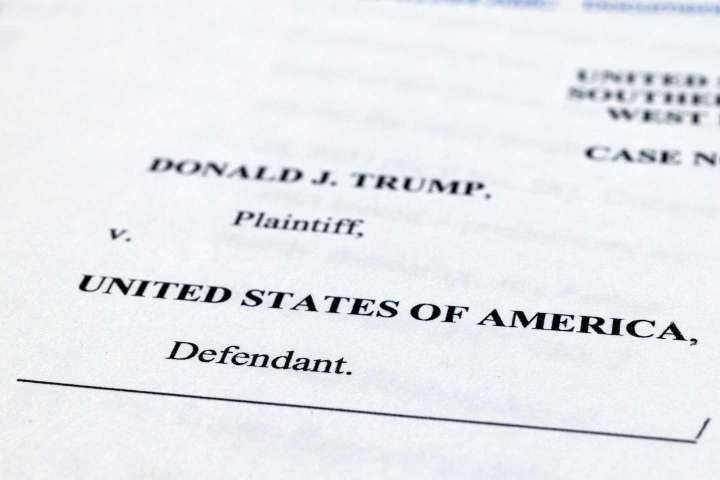If you still had doubts that Donald Trump’s relentless court-packing poses profound challenges to the legitimacy of the judiciary, U. S. District Judge Aileen M. Cannon’s ruling in favor of the man who appointed her should resolve them.
The Trump-appointed judge delivers the goods for her patron

Nope, said Cannon. Trump is still special. He has rights no one else has because he is an ex-president. She said so right out. “Based on the nature of this action,” Cannon wrote, “the principles of equity require the Court to consider the specific context at issue, and that consideration is inherently impacted by the position formerly held by Plaintiff.”
Meaning that, even if no other American would enjoy the right to have a special master examine secret and top secret documents that any of the rest of us would likely be indicted for possessing, Trump is “inherently” above us. This is a ruling tailored for one man, which is not supposed to happen in a free society.
Follow E.J. Dionne Jr.‘s opinions
FollowMaking matters worse, the judge said she had no way of assessing the government’s well-grounded claims that some of the documents in question “are classified government records,” even though Trump presented no evidence refuting them.
Trump’s assertions that, like a high priest, he magically declassified everything with a virtual wave of his hand are for talk shows, not a legal proceeding. Trump, in any event, should not have possessed documents that are the government’s property, not his.
The Justice Department could not let Cannon’s nonsense stand. It filed an emergency motion with the U.S. Court of Appeals for the 11th Circuit on Friday night arguing that the judge “fundamentally erred” in her decision, but focusing on only about 100 documents “bearing classification markings.” The department asked that they be kept out of the special master process (and away from Trump’s lawyers) so the FBI could continue its criminal investigation and “identify and mitigate potential national security risks.”
From her first ruling earlier this month, Cannon’s judgments have been described by respected outsiders with words such as “unprecedented,” “untenable,” “radical,” “oblivious,” “deeply problematic” and “stupid.” And also “wrong” and “deeply flawed.” Those last two characterizations came from Trump’s former attorney general, William P. Barr, whose own efforts to protect the president could lead to congressional scrutiny.
Cannon’s legal antics come at an awkward time for those — led by Chief Justice John G. Roberts Jr. — who scold anyone questioning the judiciary’s legitimacy in the wake of the unparalleled efforts by Trump, Sen. Mitch McConnell (R-Ky.) when he was majority leader, and the conservative Federalist Society to stuff the courts with conservatives.
Roberts said earlier this month that “simply because people disagree with an opinion is not a basis for criticizing the legitimacy of the court.” Perhaps true in a vacuum, the statement is suffused with a faux innocence about how the current right-tilting Supreme Court majority — and similar majorities on many circuit courts — were created.
If McConnell and his allies had really cared about judicial legitimacy, they would not have denied Merrick Garland of even a hearing when President Barack Obama named him to the Supreme Court more than seven months before the 2016 election. (It’s either irony or tragedy that a Justice Department now lead by Attorney General Garland is battling Cannon’s Trumpfication of the law.)
Nor would conservatives have turned around four years later and rushed Justice Amy Coney Barrett through the Senate just eight days before Trump lost the 2020 election. You can’t engage in nakedly aggressive power politics and then insist: “Nothing happening here, it’s all on the level, move on.”
Not for nothing did Justice Elena Kagan point to the “problem” caused “when courts become extensions of the political process” during a visit to Northwestern University’s Pritzker School of Law last Wednesday. She was talking about court decisions, but her words apply as well to the process that produced a 6-3 conservative Supreme Court advantage — and judges such as Cannon.
Let’s stipulate: There’s always politics in a system involving presidential appointments and Senate confirmation. What we have not seen before is what Sen. Sheldon Whitehouse (D-R.I.) calls “The Scheme,” the title of his forthcoming book on how dark money conjoined with Senate and presidential actions to transform the judiciary. The legitimacy crisis Roberts mourns was triggered by the success of a relentless political struggle for judicial supremacy.
Maybe the 11th Circuit — even some in its majority named by Trump — will decide that Cannon’s ruling is too much of an embarrassment. Maybe Raymond Dearie, the special master she appointed, will save the day, allowing her to retreat. But Cannon has already shown why there is reason to shudder whenever we hear the words “Trump-appointed judge.”






